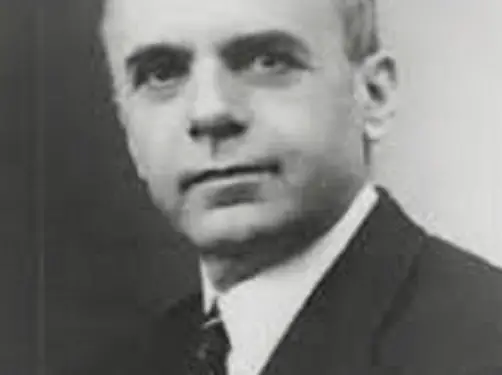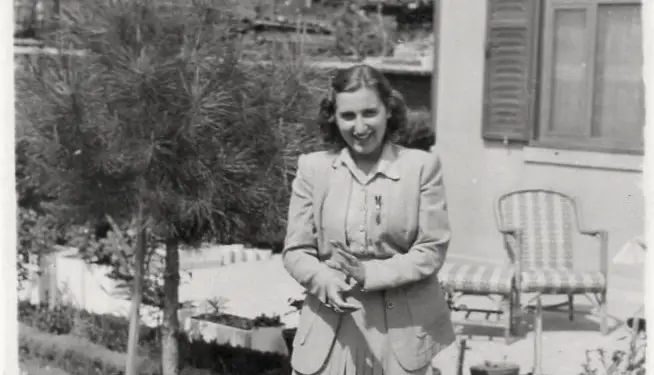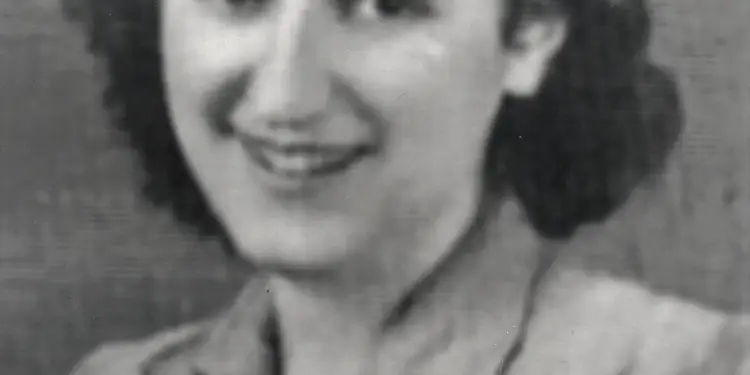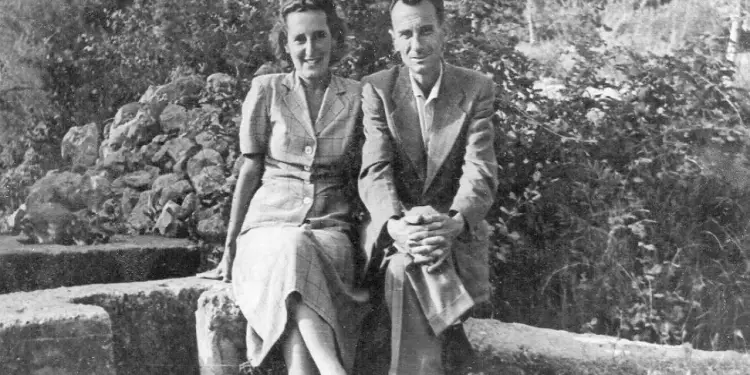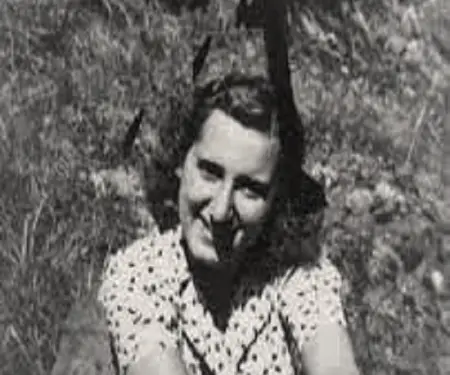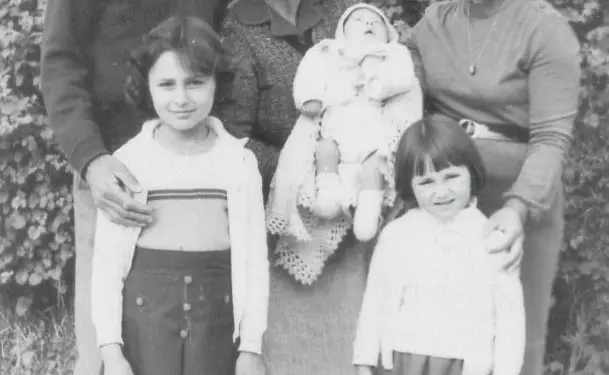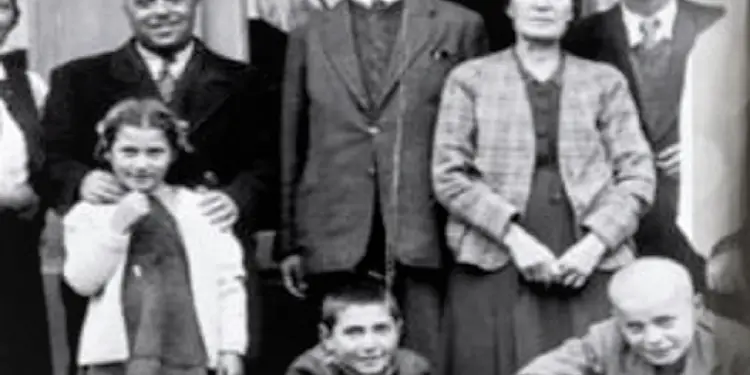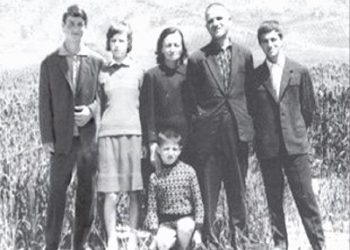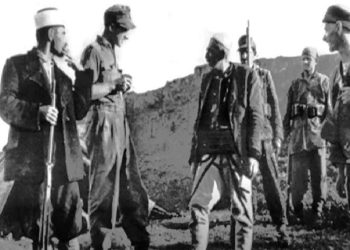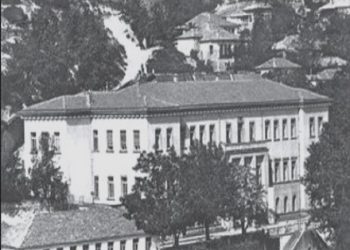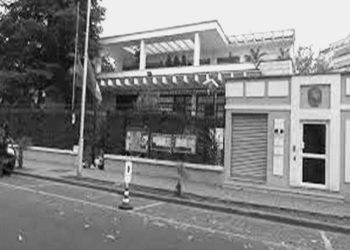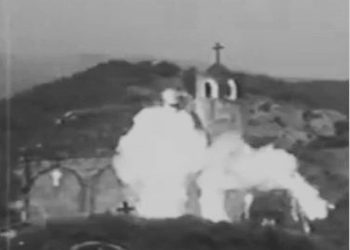By Eugjen Merlika
Part eleven
– Pride and pain …-
Continued from the previous issue…
Memorie.al/ Interest the red posters, placed at many points of the entrance to the square, and announced the awarding of prizes for the 11th edition of the “Culture of the Sea” competition.
San Felice Circeo, one of the tourist pearls of the Tyrrhenian coast, is a peninsula-shaped hill visible from tens of kilometers away, like a giant tongue, which seems to mock from the height of millennia and legends our modern world always imbued with problems eternal of man. The shopping of the city and the blueness of the sea make the impressions of the sunsets in this pet corner of nature indelible from memory.
It was this sea and these sunsets that probably amazed Ulysses of Ithaca on the way back home, enticing them to accept the tempting offers of the beautiful witch Çirçe, whose name continues to live alongside the city. In this city, starting from the year of great hopes 1989, every year a special noise, composed of well-known personalities of the Italian cultural life, awards with the prize “Culture of the sea”, various works in poetry or prose, of which have at their center inspiration, action, contemplation, the sea.
The sea, this endless mass of waters that carries within itself the mystery of creation, has been for man, since antiquity, a source of inspiration that stimulated the imagination, curiosity, spirit of research. The sea and the sky, a blue symbiosis of the greatness of nature, made man feel powerless, but with the seductive force of mystery they encouraged him to face the challenge towards the unknown, through which he determined the way forward, to the dizzying heights of today’s science. .
In the works of the temples of world art, from Homer to Hemingway, the sea is often present in all its nuances and phenomena. Perhaps the creators of the annual competition in San Felice Circeo, have thought to pay due homage to this presence of the sea in art and human life. In Italy, a country known for the high degree of poetic tradition, poetry competitions are numerous and are attended by many people, well-known or amateurs of poetry.
Considering the noise participants of the “Sea Culture” competition, I think this is one of the most serious that takes place here. The jury, composed of well-known writers such as: Dacia Maraini, Elisabetta Granzotto, Stanislao Nievo, Francesco Agresti and established journalists such as: Gian Paolo Cresci, Rino Icardi, Franco Cuomo and Romano Tripodi, awarded the International Poetry Prize for edition 1999, a well-known firm of modern Albanian poetry, the poet Visar Zhiti, for his triptych Suicide of the Homeland (Heaven – Earth – Sea).
Written in the tragic days of March 1997, this cycle of poems reflects very important historical moments, lived on the borders of paradox, absurdity, ir-realism by the Albanian society. The title of the triptych perfectly sums up the catastrophe experienced by the Albanians and the poet himself, appearing in scenes of barbaric destruction, unmotivated graves and the collapse of institutions with serious consequences for a long time.
“Even earthquakes have not left so many ruins /
“Fire burns the roofs of our history…”,
The poet writes with the deep pain not only of the art man but also of the representative of the culture of his country in a friendly country, in the ancient and new Rome, which for Albania has been and remains the gateway to Europe. The triptych, translated quite well into Italian had been published and made known. It is interesting that the poet did not submit his poems in the competition, but the jury chose them among many other poems to evaluate them with the above-mentioned prize.
This fact, of course, gives more importance to the award in itself and constitutes a motive of pride for all Albanians, especially in today’s moments when a part, even if a small part of our compatriots, have transformed the image of the Albanian in the eyes of the public synonymous with crime, illegality, prostitution.
With joy and this feeling of pride I went that evening of July 4, to participate in that ceremony that was quite well organized, with a satisfactory level that made us spend two very pleasant hours. The ceremony was organized under the auspices of the Lazio Province Culture and Tourism Branch and the Latina Province Tourism Section. The Organizing Committee of the event included well-known political and social authorities of the Province of Latina. The whole jury stood at the podium table and the guest of honor was chosen one of the most famous firms of Italian journalism, Enzo Biagi.
After the awarding of the poetry collection prizes, of the spring project, of the study center “Roma Europa 2000” for archeology, it was time to present the winner of the International Poetry Prize. The portrait of the Albanian poet Visar Zhiti was sketched with a few brushes. It was noted that during the communist dictatorship, the young poet was sentenced to forced labor, after writing poems that did not fit the models of the so-called “socialist realism”, while in recent years he had the role of cultural attaché of Albania at the Albanian Embassy in Rome.
Well-known journalist Augusto Giordano, who very kindly invited the poet to the podium, wished him not only further success in the field of poetry, but also good luck in the new task that was already waiting for him in his country after, as he said he, Visar Zhiti left the task he had hitherto in Rome.
Then Visari took the floor, who with all the understandable emotion in front of a hall with foreign and unknown listeners, spoke briefly and clearly. He thanked the jury and the organizers of the ceremony for the great honor they were doing, which he saw as a sign of kindness and for the country that gave birth to and inspired the poems and wished that the sea that connects the two coasts of our countries, serve as an increasingly strong bridge of friendship between our two peoples.
It did not last long, maybe he could say other things, talk more about himself, about the past, about the future…! Preferred to be silent at, sometimes silence speaks louder than words.
In those moments the thought took me back in years. It was the winter of 1980-’81 in the Spaç camp prison. The third area where pyrite was extracted going to Laç, at the Superphosphate Plant. Visar worked in the gallery with temperatures above 50 ° and when he went out by wagon he found the cold wind and the temperature below 0 °. They were days and nights of fatigue and despair, longing for families, relatives and the common city of youth memories, Lushnja. It was a time of sadness and faded hopes and trampled by the bloody dictatorship that every day increased the number of Albanian boys and girls, sentenced to forced labor under the infamous Article 55/ a.
Maybe those scenes were taken into account by the poet of the prison’s sorrows in those moments, maybe at the same time we both broke away from that ceremony to return, even for a few seconds, to those conversations of ours there in the pit of Spaç surrounded by barbed wire and cops…! Perhaps to continue that conversation, the poet instinctively dared to get off the podium and return to the front row where his handsome wife and little boy were.
But the present reporter immediately stopped him and begged him to stay on the podium for a while. The tribute to the poet from Albania had to be special; the public had to listen to the poems that the competition jury had deemed worthy of the International Poetry Prize. So, the whole triptych would be recited and the occasion brought that the one who recited it, with the mastery of a real actor, was the grandson of an Albanian woman.
The deep silence that accompanied the recitation left the background to the light noise of the cool evening breeze that the sea offered us as a reward for the homage that the people of culture paid to him so generously. In those moments I was reminded of a phrase by Lamartine, addressed to the great Arbëresh De Rada: “Poetry was born on your shores and it must return there.”
Could this consideration of the great French romantic be attributed to the talented musky poet? The seriousness and focused attention of the Italians who heard “Homeland Suicide” that evening may have been an affirmative answer. I, as a friend of Visar as a compatriot and as a fellow sufferer, felt a deep emotion, a joy in my soul and at the same time a pain. The burst of applause, which covered the square as soon as the recitation was over, approved the jury selection and my thoughts.
Spaç-San Felice Circeo, two place names that share not only the sea and the hundreds of kilometers but also the symbolism of two opposite worlds that differ from each other in appreciation and respect for notions such as freedom, human rights, work, talent and above all man himself. Fate had us to try both worlds, although Spaç’s weight weighed so heavily that it conditioned our presence in this other world. For Visar, fate was more benevolent.
Poetic talent and communist persecution were the credentials that opened the doors of politics. Initially as a member of the Democratic Party and later as an official at the Albanian Embassy in Rome, he worked with all his might to build and affirm the anti-Spaç world. In Rome he had on his shoulders a task as difficult as it was important: to make known the Albanian culture in a country where the culture has millennial roots. His personality from the poet already known and in the local cultural circles certainly gave him a hand in carrying out his mission.
That mission that has its origin in the idea of the stability of the Nation, in its major interests in the vital communication for it with other peoples, in its real and historical image, must stand on the games of power struggle of the political parties of Tirana. People who can skillfully carry out that mission anywhere in the world should be like scarce water. Every government that the case brings to power must value those people and give them the right place. This would be the first important indicator of the normality of a State.
This is why, in addition to the pride of the Albanian (I was probably the only Albanian present at the ceremony except the interested and the family), for this award I felt a pain when I learned the fact of the poet’s transfer and a thread of doubt began to swirl in my brain. I know that officially this transfer is motivated by the rules of circulation in the diplomatic world, I know that no one in the state nomenclature will claim that we are dealing with a sophisticated form of the infamous “class war”, but the fact that Visar Zhiti is transferred from Rome to Tirana, it seems to me that proves something else.
It is the general tendency of the left, when they take power, to occupy all state institutions. This tendency is stronger the closer it is to the original ideology and I believe that the reform of the Albanian socialists still leaves much to be desired.
Perhaps Visar Zhiti will be added to the endless number of officials of all levels, who in these two years of governing the Alliance for the state have been replaced by loyalists of the ruling parties. No matter how motivated such an action is, in my opinion, it remains unjustifiable and harmful, since in a delicate and important place will be missing a person who, thanks to his ability, has created the best premises to make a useful work for the benefit of the image of Albania in Italy.
I am convinced that Messrs. Majko and Milo, know well how much the image is worth to lay the foundations for the advancement of our country and, I do not want to believe that they can have the opinion that once expressed a former Prime Minister: “We put a shit, “We tell him to do our job and he does it for us.”
All these thoughts occupied my brain that beautiful July evening, when a poet from Lushnja received an international poetry award in the homeland of Dante, Petrarca, Ariosto, Leopard, d’Anuncios, Montale, Ungaret, and Quasimodo. The fresh breeze, blowing from the sea in San Felice Circeo, seemed to me to come from the ballads of Albania, from the verses of Bagëti e Bujqësia, Milosao, or the back song of Bala, and in my soul pride and pain were piled up. Memorie.al
LATINA, JULY 20, 1999




